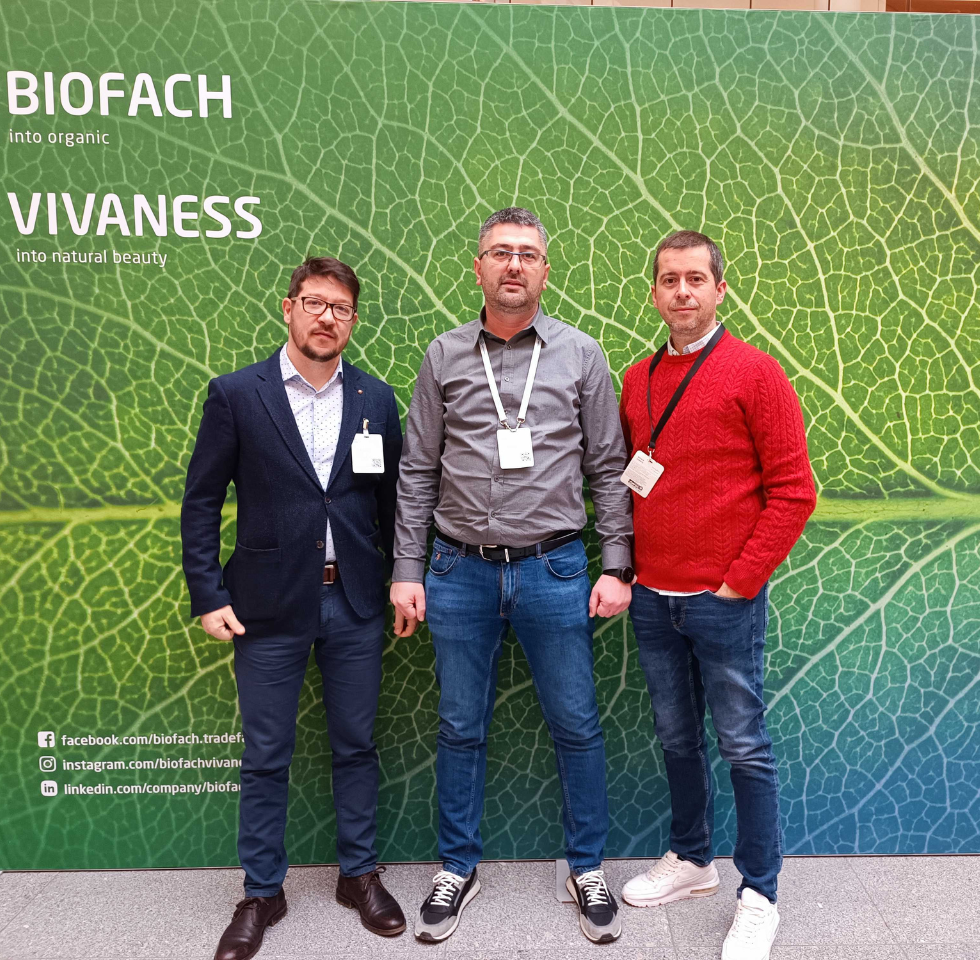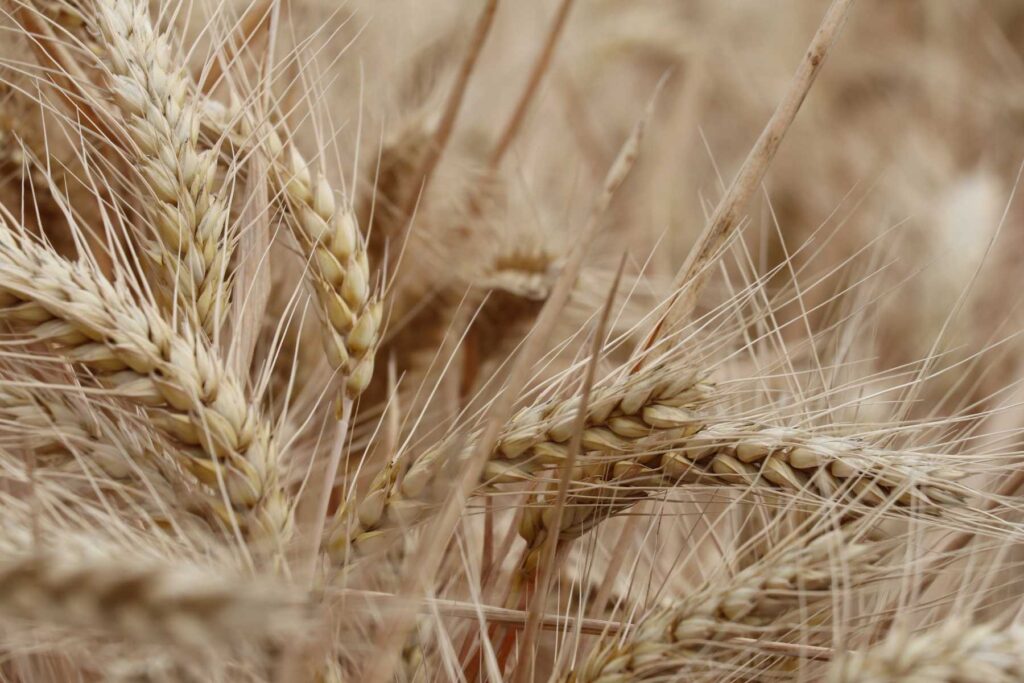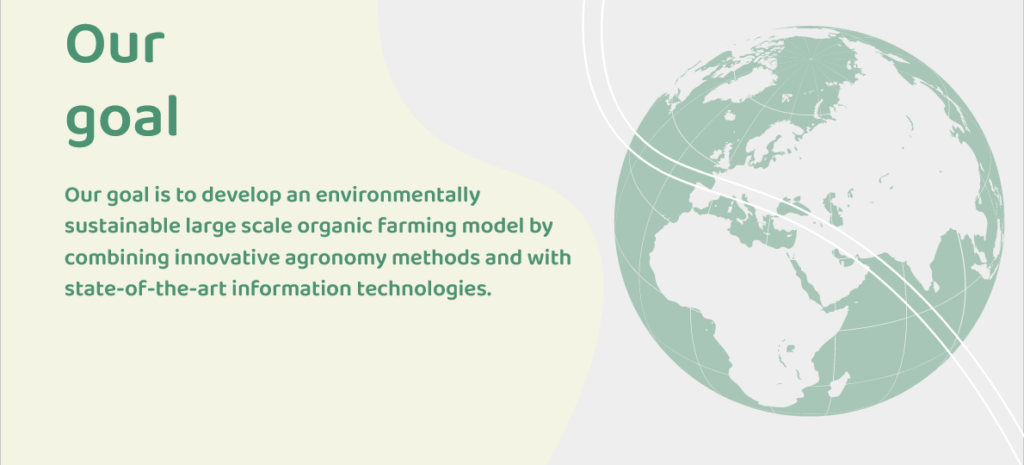Njamito Goes Fairtrade for Cocoa and Vanilla
March 31, 2025Njamito is now Fairtrade certified for cocoa and vanilla! Here’s what that means for farmers, the planet, and the values behind our meal-in-a-bottle.
Read articleHow we are defining and distinguishing our offer, what we’ve learned, and what our next steps are in approaching the market.

The 2022 season was our first time on the organic market, and we began cooperating with processors of organic raw materials for human consumption, traders, and agents who share our way of thinking and our values about healthy produce. This work was a big step toward becoming a first choice for processors from the plant-based and vegan industry segment.
Our targeted markets include the list of the largest importers of organic products in the EU for 2021: Netherlands (945,000 tons), Germany (517,000 tons), Belgium (276,000 tons), France (271,000 tons), and Italy (225,000 tons). To this list we will also add Switzerland, which has the largest organic consumption per capita in Europe.
Our geographical position, logistics costs and parity (which play a bigger and bigger role in price calculation), and taking into account the demand and payment capacity itself, make it logical for us to target the markets of Western Europe at the moment. Our goal is to become a recognizable and reliable partner for our customers. To accomplish that, honest, fair, open, and transparent long-term cooperation is a must.
We went to BIOFACH 2023 because it is “the World’s Leading Trade Fair for Organic Food,” and fit our sales goal to find new strategic and long-term partners who are buyers for organic raw materials for human food, and who want data and traceability in their markets within Western Europe. We have been creating a new, sustainable model for the production of high quality organic food. Adding more standards and certificates brings us closer to the goal of becoming an attractive partner on the most demanding and solvent markets.

In addition to finding partners for our organic products, we plan to structure multi-year partnerships to ensure safe and continuous placement of products and inflow in the next few years. During that period, we will test the market for the entry of our processed and final products. The long-term goal is to become one of the first choices for all processors of organic raw materials for human consumption on a global level. After that, by developing our own semi-finished and final products, and constantly expanding our assortment, we hope to become a central place for supplying organic ingredients for human food at fair prices, as well as for attracting farmers to convert to sustainable agriculture – according to our model. In this way, we are helping to shape the future of agriculture for generations to come.
What separates us from other organic producers is that we do not use any inputs of animal origin in our production, only ‘green manure.’ We also provide complete traceability behind our products and our performance on the market. In addition, we develop our own digital applications for every part of our work.
Our products are accompanied by a strong post-sales service, which is always available for all analyses of quality and safety parameters, as well as a willingness to share everything with the public.
Given that this is our first year with organic status, there is a lot of work ahead of us where top quality goods are our standard. There is always room for improvement, through the monitoring and selection of the best and most resistant varieties, and we are taking steps forward without wasting time.

We have learned that it sometimes takes a long time to establish concrete cooperation with a buyer, and that it takes a lot of time and effort to invest in building long-term relationships. We also realized that customers are very difficult to acquire and very easy to lose. Excellent relations with partners are a priority, and consist of a completely open and honest relationship, and frequent communication. To that end, in November 2022, we made our first sale of organic-certified spelt.
We learned that it is necessary to divide the risks, and contract part of the goods before the harvest through forward contracts, and offer the other part of the goods in a later period on the spot market.
Finally, but not the least important – in the foreign trade business with organic goods, the speed of information exchange and timely reaction to possible problems are very important – because when we become aware of a problem in time, then we have the opportunity to react and try to correct everything.
We gain trust with partners not only through having organic certificates, but also by offering clear traceability, which we consider one of our comparative advantages.
We have been working on ways to store our goods completely safely for a long period of time with the use of a refrigeration system and ecological treatment of pests with N2 or CO2 gas. If successful, these methods will allow us to store until the right moment to sell. We are in the process of developing and applying these storage solutions.
One of the conclusions from the previous part of the season is that logistics have become an even more important factor in creating prices and realizing business. The insufficient number of available vehicles that meet the strict requirements for the transport of organic goods abroad leads to an increase in transport prices and an increase in the share of the transport price in the final price of the goods.
For 2023, the sales goal is to find new strategic and long-term partners, namely, buyers of organic raw materials for human food who require data and traceability on the markets of Western Europe. With the introduction of additional standards and certificates, the goal is to become an attractive partner on the most demanding and solvent markets.

We will continue our presence in the markets of Western Europe, the targeted customers are processors of organic food for people who care about the best traceability, and who are ready to further develop their production with us to the level necessary for changing consumer eating habits. Therefore, we want to influence the demand, to create and help shape it, because it is precisely on the demand side that we see a bottleneck for further growth and development of sustainable agricultural organic production.
One of the plans for this year is the research and organization of our own primary processing of raw materials in order to offer semi-finished and final products in accordance with their preferences to the market.
***
Sources:
Njamito is now Fairtrade certified for cocoa and vanilla! Here’s what that means for farmers, the planet, and the values behind our meal-in-a-bottle.
Read articleIdealism met reality as we launched our meal-in-a-bottle, Njamito. After 100.000 bottles sold, here’s what we learned about organic food and market adaptation.
Read articleWith organic seeds in short supply, we launched our own organic seed production journey to secure sustainable farming practices.
Read article